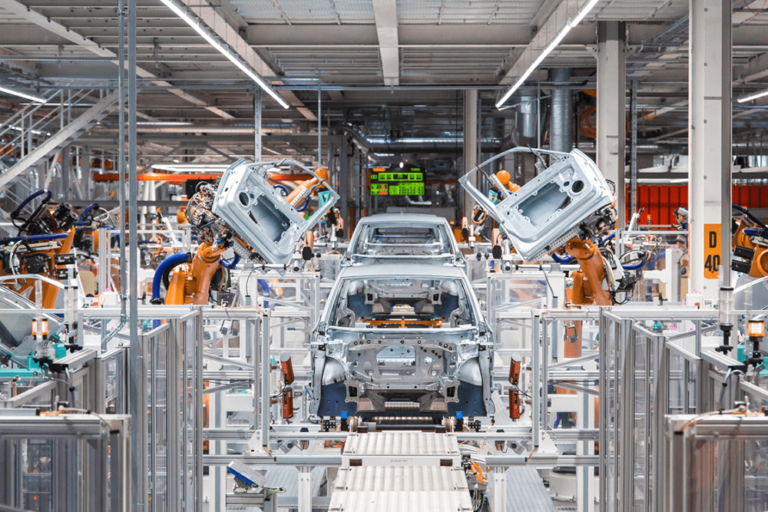Volkswagen has restarted full-scale production of electric vehicles in Dresden and Zwickau. However, according to a spokesperson, 2,200 jobs could be cut in Zwickau if demand for EVs does not pick up.
The carmaker lowered EV production at the plants in Zwickau and Dresden in the first two weeks of October. In Zwickau, it shut down one production line, while pausing production of the ID.3 in Dresden altogether. Moreover, Volkswagen terminated its long-standing three-shift agreement with workers in Zwickau after already cutting hundreds of jobs there earlier. More than 10,000 people currently work in Zwickau. And soon, more temporary jobs could be terminated.
VW is currently making improvements in vehicle production – to put it positively. The electric car plant in Zwickau is not working to capacity and will probably not be soon. It can produce up to 300,000 EVs there annually but will produce closer to 218,000 cars there this year. The company expects to make about 200,000 vehicles in the next few years if the market situation does not change.
That comes after Volkswagen reported that the demand for EVs was on the rise – even if just slightly. The carmaker increased its deliveries of electric cars by 45 per cent to 531,500 vehicles worldwide in the first nine months of 2023.
Moreover, VW recently confirmed that the upcoming flagship model Trinity will be built in Zwickau instead of Wolfsburg. The latter will be home to an all-electric SUV from late 2026. And there are rumours that the carmaker is working on an all-electric luxury model that will launch in 2027 and fill the gap left by the top combustion engine model Phaeton, discontinued in 2016.
Still, the German car industry is dealing with a drop in demand following the reform of the environmental bonus with reduced purchase premiums that came into force at the beginning of 2023. Volkswagen is said to be particularly affected, Manager Magazin reported in July. In June, VW reduced the production of electric cars at its Emden plant. The reason, too, was weakening sales, as demand dropped nearly 30 per cent below initially planned production figures.
saechsische.de (in German)


